GLOBAL COMMUNICATION PROGRAMME

English Proficiency Quiz II
Welcome to the English Proficiency Quiz II, designed to help you assess and improve your English language skills. This quiz, created by the Global Communication Programme of PT TIMAH Tbk, offers a comprehensive test of your proficiency.
- Measure your English proficiency level
- Practice your English skills
- Receive instant feedback on your performance

Welcome to the English Proficiency Quiz II designed by Global Communication Programme of PT TIMAH Tbk. This quiz will serve as one measurement of your English proficiency level as well as one tool to practice your English skills.
Would you like to start the quiz now?
YES
NO

Engineers ___ for work on the new operating smelter of the mining company.
Necessary
Hopefully
Are needed
Next month

_____ the demands of aerospace, medicine, and agriculture, many engineers are creating exotic new metallic substances.
To meet
Meet
They are meeting
Being met are

Mary Garden, ______ the early 1900’s, was considered one of the best singing actresses of her time.
A soprano was popular
In a popular soprano
Was a popular soprano
A popular soprano in

____ large natural lakes are found in the state of South Carolina.
There are no
Not the
It is not
No
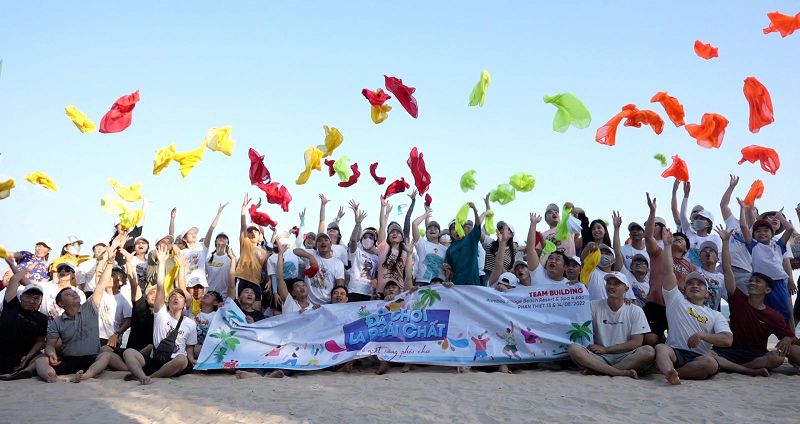
The employees were excited _______ the upcoming company trip.
About
For
To
On

I wish I _______ more time to spend with my family.
have
Had
Have had
Will have

Charlie Chaplin was a comedian __ was best known for his work in silent movies.
who
Which
Whose
What

It is generally true that the lower the stock market falls, __.
Higher the price of gold rises
The price of gold rises high
The higher the price of gold rises
rises high the price of gold

Both historically and __, Ontario is the heartland of Canada.
In its geography
Geographically
Also its geography
Geography

How do you tell the time above?
It is fifteen twelve.
It is quarter to twelve.
It is quarter past twelve.
It is twelve past quarter.

How do you tell the time above?
It is forty five one.
It is quarter past one.
It is quarter to one.
It is forty five twelve.

How do you tell the time above?
It is quarter past eight.
It is eight past thirty.
It is half past eight.
It is half to eight.

What does the phrase in blue mean?
We need to get the ball rolling to prepare our presentation for next week's meeting.
To start a relationship in a positive way
To make something start happening
O contribute something of value (to a company)
to do something from the start/very beginning

What does the phrase in blue mean?
She brings a great deal of experience to the table.
To make something start happening
To think creatively and develop new and original ideas
To do things according to the rules or the law
To contribute something of value (to a company)

What does the phrase in blue mean?
Our accountant does everything by the book so there are no problems in the future.
To do things according to the rules or the law
To be competent, alert and quick to understand new things
To be in agreement or thinking in a similar way
To increase standards or improve quality in something

What does the phrase in blue mean?
Mobile phone manufacturers raise the bar every year with their new products.
Describes when you need to start a project again from the beginning
To increase standards or improve quality in something
To obtain information directly from the original or a reliable source
To show support and give approval

What does the phrase in blue mean?
We made a proposal to expand globally and the CEO is on the same page.
To be in agreement or thinking in a similar way
Describes when you need to start a project again from the beginning
To praise someone for an achievement
To give your complete attention to something

What does the phrase in blue mean?
We always work against the clock to meet urgent deadlines.
To stop a task or activity from continuing
To be in the same difficult or unpleasant situation
Emphasises who is ultimately responsible for something
To aim to finish something before a specific time

What does the phrase in blue mean?
Everything is still up in the air about our company relocating to another office.
To be responsible for something when someone else is unavailable
Describes when something is still undecided and plans are not yet finalised
emphasises who is ultimately responsible for something
To authorise or allow someone to do something

Which statement is grammatically correct?
I have never visited an English-speaking country in my life.
I never visited an English-speaking country in my life.

Which statement is grammatically correct?
I’ve been learning English for ages.
I’m learning English for ages.

Which statement is grammatically correct?
I have wanted to give up at the beginning but I kept studying.
I wanted to give up at the beginning but I kept studying.

Which statement is grammatically correct?
He has had his hair cut. Doesn’t it look nice?
He has his hair cut. Doesn’t it look nice?

Replace the words in blue with an expression below.
Sally really used to have problems with her colleagues.
Rusty
Struggle with
Brush up
Acquire

Replace the words in blue with an expression below.
The best way to learn is to get to know fully the culture.
Acquire
Brush up
Immerse yourself in
Struggle with

Replace the words in blue with an expression below.
Andri is amazing, he can talk with anyone in English.
Acquire
Get to grips with
Hold a conversation
Brush up

Which statement is grammatically correct?
My colleagues are going to attempt to climb Bromo mountain.
My colleagues are thinking of attempt to climb Bromo mountain.
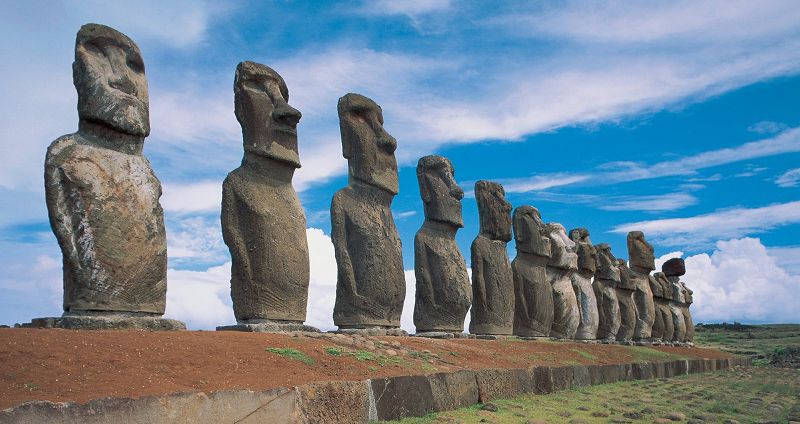
Easter Island
Easter Island is a small triangle of rock situated in the Pacific Ocean. It’s about 2,000 miles . . . . . The nearest city.
For
From
On
By
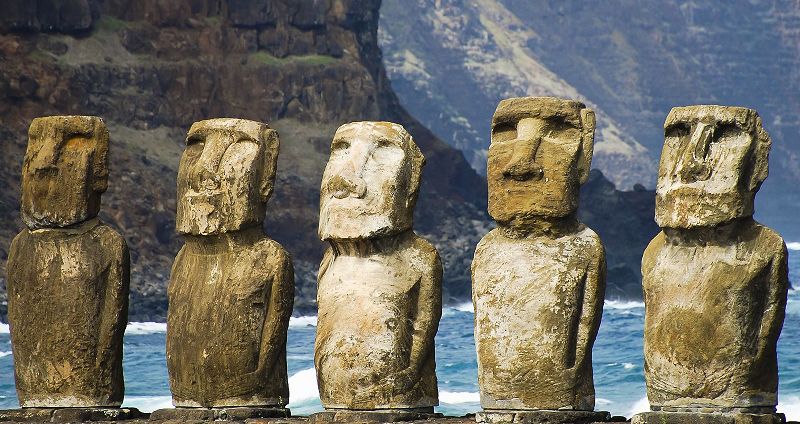
Easter Island
Easter Island is . . . . . . For its statues. Hundreds of these huge, stone faces can be . . . . . All over the island.
Important - looked
Interesting - located
Famous - found
Fascinating - situated

Easter Island
Who made them? How . . . . . . They move these giant pieces of rock? What happened . . . . . The people who lived there? Studies show that people . . . . . . Arrived on the island about 1600 years ago.
Did - to - first
Have - with - once
Were - about - just
Had - for - already
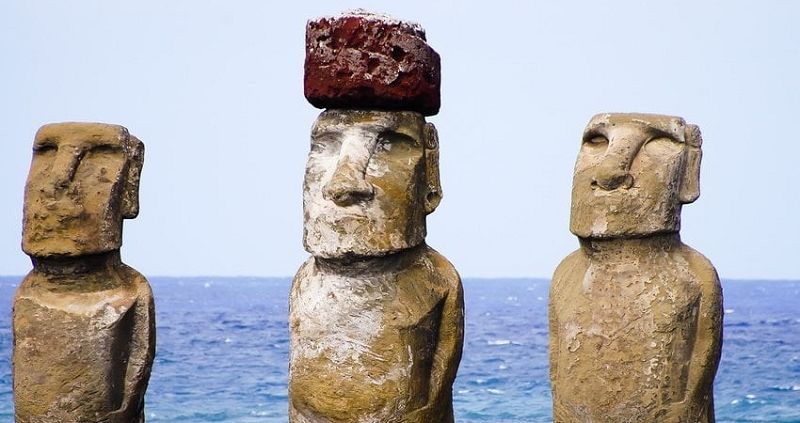
Easter Island
They had a very advanced culture. They made many objects and they had their . . . . . written language. However, the number of people on the island grew and grew . . . . . It reached about 10,000 people.
Only - so
Own - until
Clever - although
Self - because

Easter Island
Soon there were too many people and there wasn’t . . . . . Food to eat. A terrible war started and . . . . . Of the statues were broken. When western explorers . . . . . The island on Easter Day in 1722, the huge rock statues were the only sign that a great society had once lived there.
Many - few - invented
Some - lot - sailed
Enough - many - discovered
Too - enough - came

You have taken the rubbish out, . . . . . you?
Haven't
Didn't
have
Hadn't you

I think people nowadays are a lot more technically-minded than they . . . . . be.
Use to
Would
Used to
Will

I wish I could go camping with you next weekend, it sounds fun.
. . . . . though I have to work.
Basically
Unfortunately
Fortunately
Hopefully

I . . . . . Enjoy going horse-riding when I was younger.
Used to
Use to
Would
Had

I'm sorry, I . . . . . To complete that assignment for you, I was too busy.
Couldn't
Weren't able
Was able
Didn't manage

. . . . . Pyrinees Mountain range separates France and Spain.
-
A
One
The

I could talk to him but he doesn't come here often, . . . . . he?
Does
Doesn't
Do
Is

Unsinkable Ship
Naval architects never claim that a ship is unsinkable, but the sinking of the passenger-and-car ferry Estonia in the Baltic surely should have never have happened. It was well designed and carefully maintained. It carried the proper number of lifeboats. It had been thoroughly inspected the day of its fatal voyage. Yet hours later, the Estonia rolled over and sank in a cold, stormy night. It went down so quickly that most of those on board, caught in their dark, flooding cabins, had no chance to save themselves: Of those who managed to scramble overboard, only 139 survived. The rest died of hypothermia before the rescuers could pluck them from the cold sea. The final death toll amounted to 912 souls. However, there were an unpleasant number of questions about why the Estonia sank and why so many survivors were men in the prime of life, while most of the dead were women, children and the elderly.
One can understand from the reading that . . . . .
The lifesaving equipment did not work well and lifeboats could not be lowered
Design faults and incompetent crew contributed to the sinking of the Estonia ferry
139 people managed to leave the vessel but died in freezing water
Naval architects claimed that the Estonia was unsinkable
Most victims were trapped inside the boat as they were in their cabins
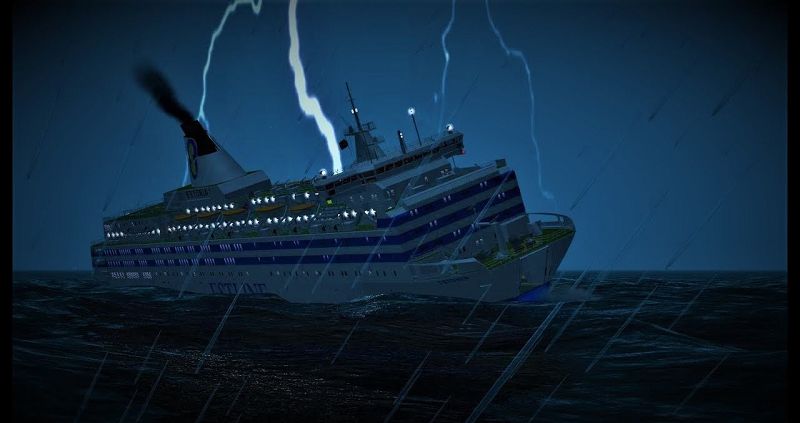
Unsinkable Ship
Naval architects never claim that a ship is unsinkable, but the sinking of the passenger-and-car ferry Estonia in the Baltic surely should have never have happened. It was well designed and carefully maintained. It carried the proper number of lifeboats. It had been thoroughly inspected the day of its fatal voyage. Yet hours later, the Estonia rolled over and sank in a cold, stormy night. It went down so quickly that most of those on board, caught in their dark, flooding cabins, had no chance to save themselves: Of those who managed to scramble overboard, only 139 survived. The rest died of hypothermia before the rescuers could pluck them from the cold sea. The final death toll amounted to 912 souls. However, there were an unpleasant number of questions about why the Estonia sank and why so many survivors were men in the prime of life, while most of the dead were women, children and the elderly.
It is clear from the passage that the survivors of the accident . . . . .
Helped one another to overcome the tragedy that had affected them all
Were mostly young men but women, children and the elderly stood little chance
Helped save hundreds of lives
Are still suffering from severe post-traumatic stress disorder
Told the investigators nothing about the accident
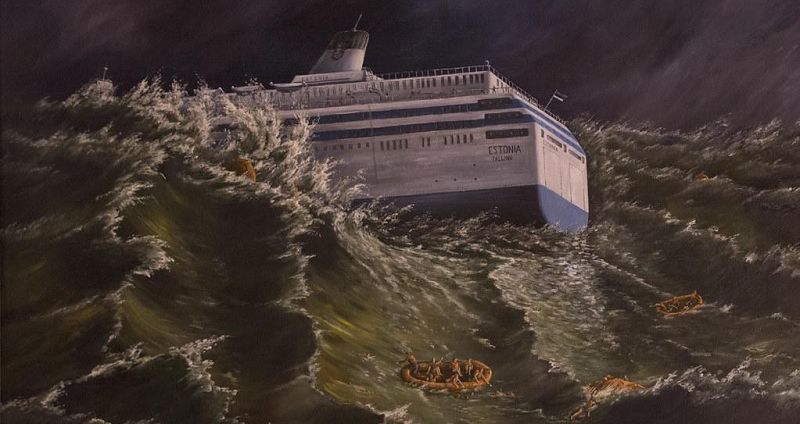
Unsinkable Ship
Naval architects never claim that a ship is unsinkable, but the sinking of the passenger-and-car ferry Estonia in the Baltic surely should have never have happened. It was well designed and carefully maintained. It carried the proper number of lifeboats. It had been thoroughly inspected the day of its fatal voyage. Yet hours later, the Estonia rolled over and sank in a cold, stormy night. It went down so quickly that most of those on board, caught in their dark, flooding cabins, had no chance to save themselves: Of those who managed to scramble overboard, only 139 survived. The rest died of hypothermia before the rescuers could pluck them from the cold sea. The final death toll amounted to 912 souls. However, there were an unpleasant number of questions about why the Estonia sank and why so many survivors were men in the prime of life, while most of the dead were women, children and the elderly.
According to the passage, when the Estonia sank, . . . . .
There were only 139 passengers on board
Few of the passengers were asleep
There were enough lifeboats for the number of people on board
Faster reaction by the crew could have increased the Estonia's chances of survival
All the passengers had already moved out into the open decks
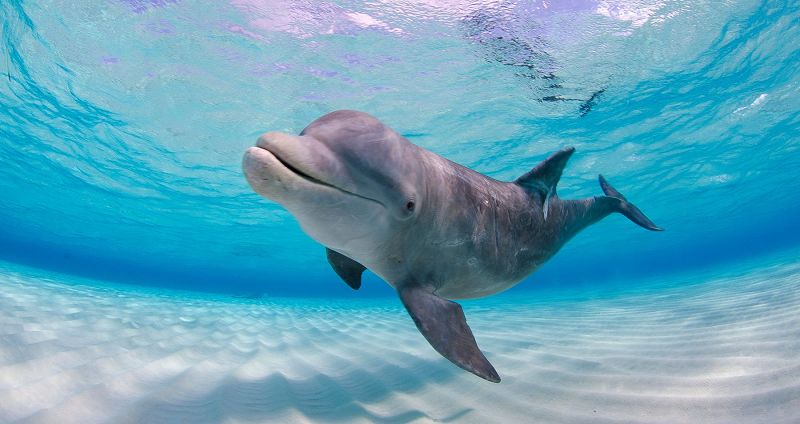
Dolphins
Dolphins are regarded as the friendliest creatures in the sea and stories of them helping drowning sailors have been common since Roman times. The more we learn about dolphins, the more we realize that their society is more complex than people previously imagined. They look after other dolphins when they are ill, care for pregnant mothers and protect the weakest in the community, as we do. Some scientists have suggested that dolphins have a language but it is much more probable that they communicate with each other without needing words. Could any of these mammals be more intelligent than man? Certainly the most common argument in favor of man's superiority over them that we can kill them more easily than they can kill us is the least satisfactory. On the contrary, the more we discover about these remarkable creatures, the less we appear superior when we destroy them.
It is clear from the passage that dolphins . . . . .
Don't want to be with us as much as we want to be with them
Are proven to be less intelligent than once thought
Have a reputation for being friendly to humans
Are the most powerful creatures that live in the oceans
Are capable of learning a language and communicating with humans
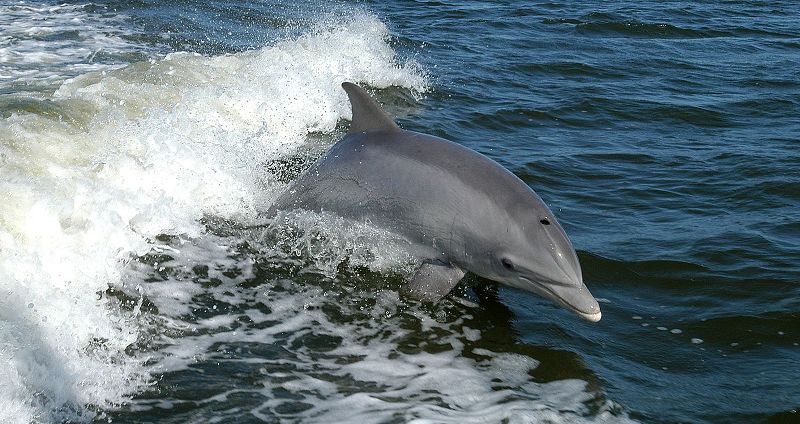
Dolphins
Dolphins are regarded as the friendliest creatures in the sea and stories of them helping drowning sailors have been common since Roman times. The more we learn about dolphins, the more we realize that their society is more complex than people previously imagined. They look after other dolphins when they are ill, care for pregnant mothers and protect the weakest in the community, as we do. Some scientists have suggested that dolphins have a language but it is much more probable that they communicate with each other without needing words. Could any of these mammals be more intelligent than man? Certainly the most common argument in favor of man's superiority over them that we can kill them more easily than they can kill us is the least satisfactory. On the contrary, the more we discover about these remarkable creatures, the less we appear superior when we destroy them.
The fact that the writer of the passage thinks that we can kill dolphins more easily than they can kill us . . . . .
Means that they are better adapted to their environment than we are
Shows that dolphins have a very sophisticated form of communication
Proves that dolphins are not the most intelligent species at sea
Does not mean that we are superior to them
Proves that Dolphins have linguistic skills far beyond what we previously thought
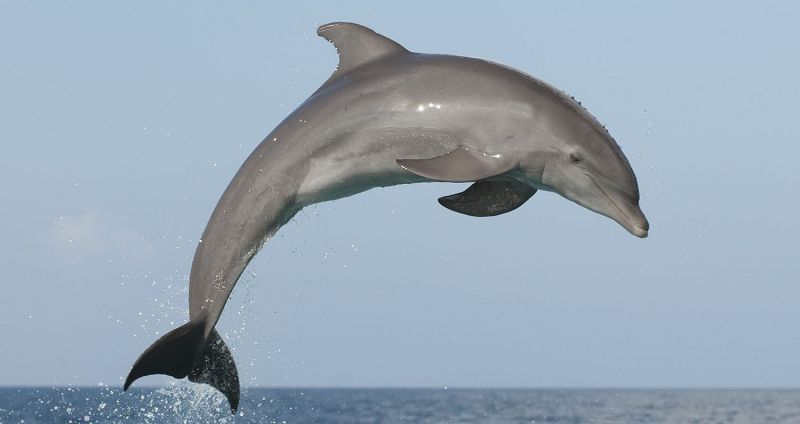
Dolphins
Dolphins are regarded as the friendliest creatures in the sea and stories of them helping drowning sailors have been common since Roman times. The more we learn about dolphins, the more we realize that their society is more complex than people previously imagined. They look after other dolphins when they are ill, care for pregnant mothers and protect the weakest in the community, as we do. Some scientists have suggested that dolphins have a language but it is much more probable that they communicate with each other without needing words. Could any of these mammals be more intelligent than man? Certainly the most common argument in favor of man's superiority over them that we can kill them more easily than they can kill us is the least satisfactory. On the contrary, the more we discover about these remarkable creatures, the less we appear superior when we destroy them.
One can infer from the reading that . . . . .
Dolphins are quite abundant in some areas of the world
Communication is the most fascinating aspect of the dolphins
Dolphins have skills that no other living creatures have such as the ability to think
It is not usual for dolphins to communicate with each other
Dolphins have some social traits that are similar to those of humans
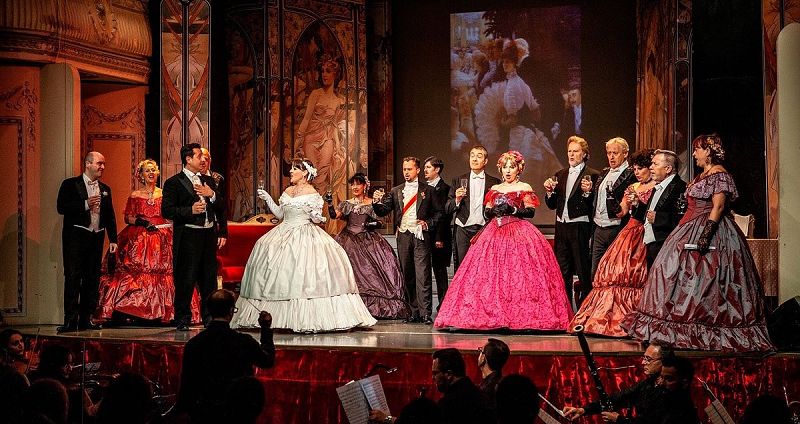
Opera
Opera refers to a dramatic art form, originating in Europe, in which the emotional content is conveyed to the audience as much through music, both vocal and instrumental, as it is through the lyrics. By contrast, in musical theater an actor's dramatic performance is primary, and the music plays a lesser role. The drama in opera is presented using the primary elements of theater such as scenery, costumes, and acting. However, the words of the opera, or libretto, are sung rather than spoken. The singers are accompanied by a musical ensemble ranging from a small instrumental ensemble to a full symphonic orchestra.
It is pointed out in the reading that opera . . . . .
Has developed under the influence of musical theater
Is a drama sung with the accompaniment of an orchestra
Is not a high-budget production
Is often performed in Europe
Is the most complex of all the performing arts

Opera
Opera refers to a dramatic art form, originating in Europe, in which the emotional content is conveyed to the audience as much through music, both vocal and instrumental, as it is through the lyrics. By contrast, in musical theater an actor's dramatic performance is primary, and the music plays a lesser role. The drama in opera is presented using the primary elements of theater such as scenery, costumes, and acting. However, the words of the opera, or libretto, are sung rather than spoken. The singers are accompanied by a musical ensemble ranging from a small instrumental ensemble to a full symphonic orchestra.
We can understand from the reading that . . . . .
People are captivated more by opera than musical theater
Drama in opera is more important than the music
Orchestras in operas can vary considerably in size
Musical theater relies above all on music
There is argument over whether the music is important or the words in opera

Opera
Opera refers to a dramatic art form, originating in Europe, in which the emotional content is conveyed to the audience as much through music, both vocal and instrumental, as it is through the lyrics. By contrast, in musical theater an actor's dramatic performance is primary, and the music plays a lesser role. The drama in opera is presented using the primary elements of theater such as scenery, costumes, and acting. However, the words of the opera, or libretto, are sung rather than spoken. The singers are accompanied by a musical ensemble ranging from a small instrumental ensemble to a full symphonic orchestra.
It is stated in the reading that . . . . .
Acting and costumes are secondary to music in musical theater
Many people find musical theater more captivating than opera
Music in musical theater is not as important as it is in opera
An opera requires a huge orchestra as well as a large choir
Opera doesn't have any properties in common with musical theater

That's such a nice piece of furniture. I wish it . . . . . Fit in my apartment.
Can
Could
Was able
Might

Refrigerating meats . . . . . The spread of bacteria.
Slows
Slow
Slowing
To slow
Is slowed
{"name":"GLOBAL COMMUNICATION PROGRAMME", "url":"https://www.quiz-maker.com/QPREVIEW","txt":"Welcome to the English Proficiency Quiz II, designed to help you assess and improve your English language skills. This quiz, created by the Global Communication Programme of PT TIMAH Tbk, offers a comprehensive test of your proficiency.Measure your English proficiency levelPractice your English skillsReceive instant feedback on your performance","img":"https:/images/course8.png"}
More Quizzes
Test your English Skills - Take a Free Quiz
1056470
Partea_II_militari&mecanici_engleza_cod_1041 [cod:1041]
60300
Past simple
520
DATABASE CONCEPTS
520
Free Paramedical Tattooing Knowledge Test
201026679
Lilo & Stitch Experiments - Test Your Stitch IQ
201047377
How Well Do You Know WFTDA Hand Signals? Take the!
201046413
Reserved Powers Example: Test Your Knowledge Now
201025930
Think You Can Ace the Financial Planning? Try Free!
201047377
Free EOC English 1 Practice
201022507
Define Plain Jane: Personality Reveals Your Style
201031018
Evolution
15824371